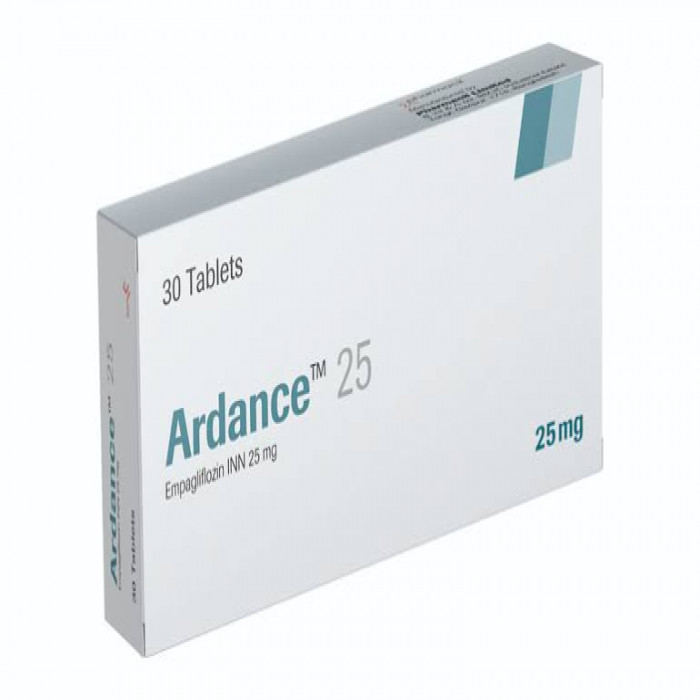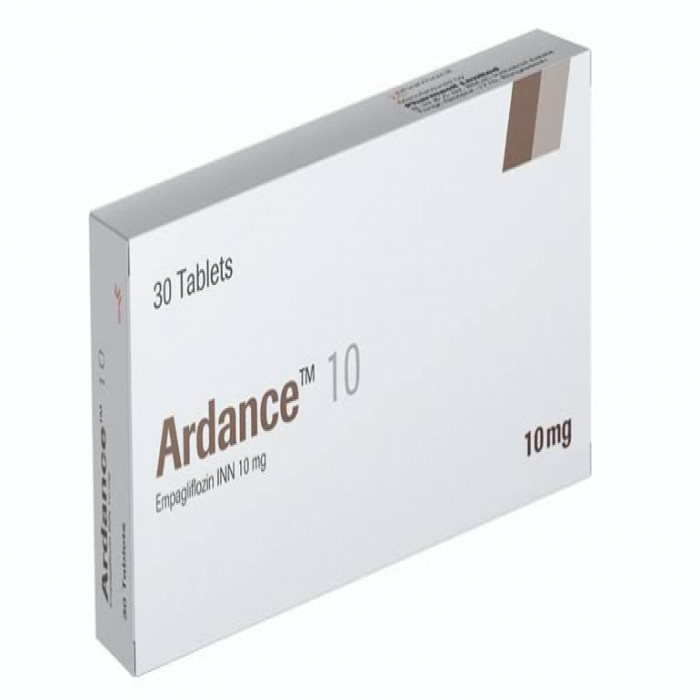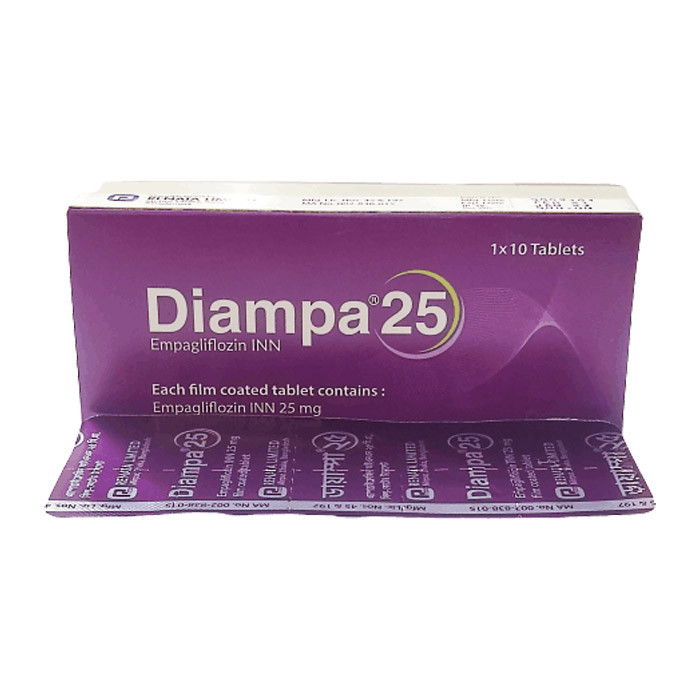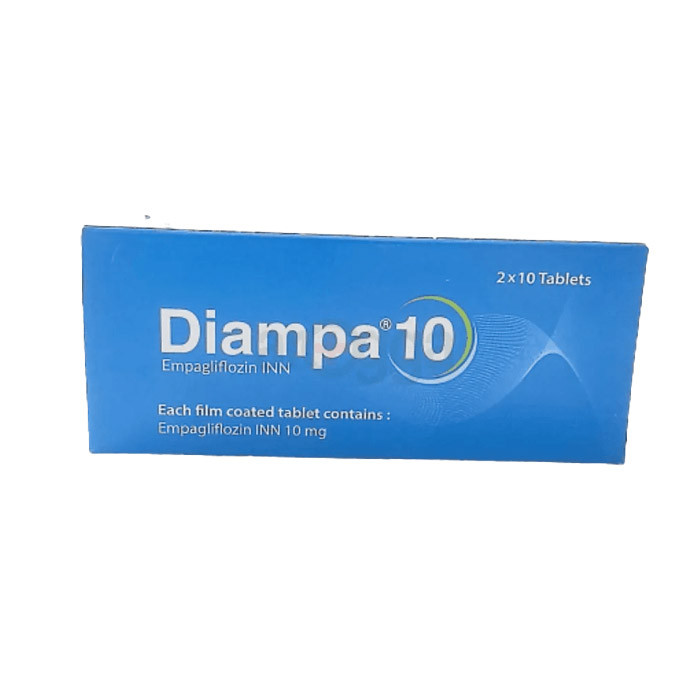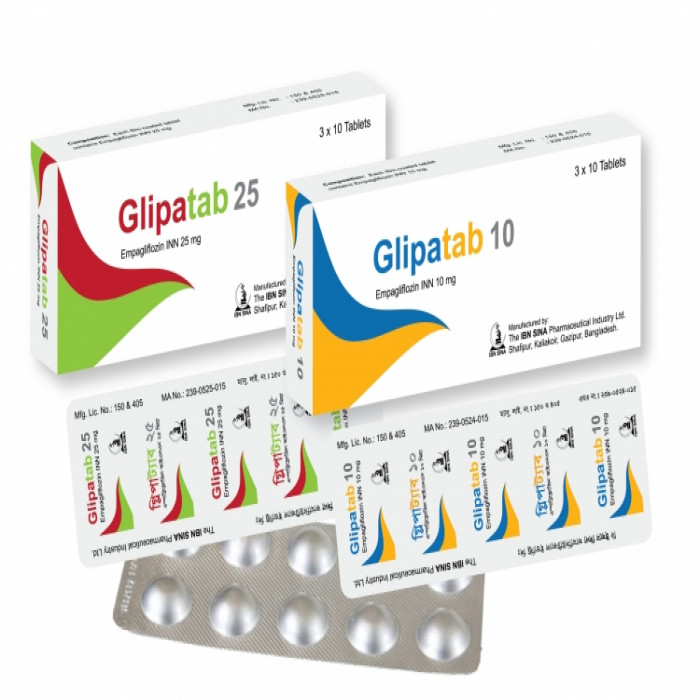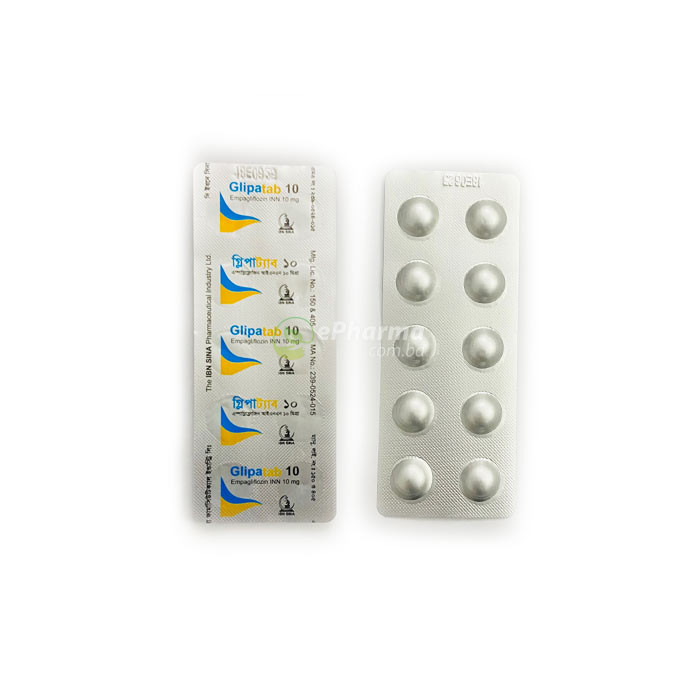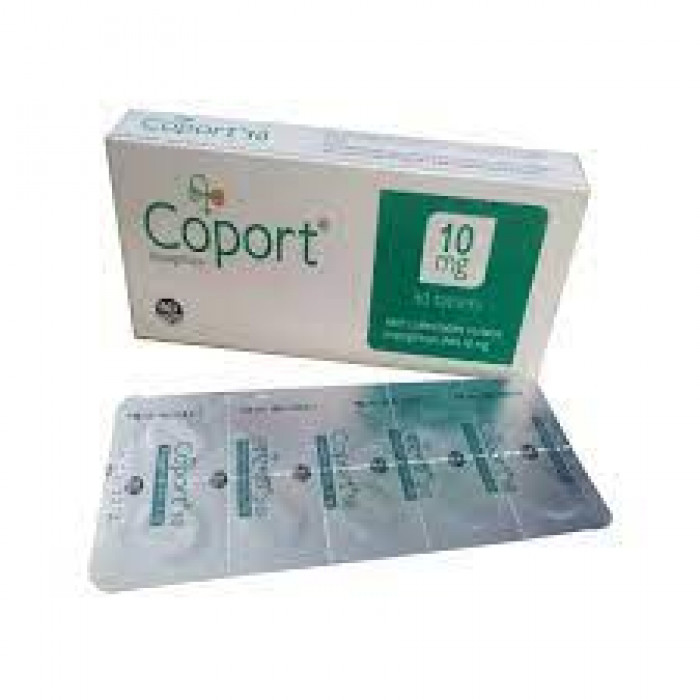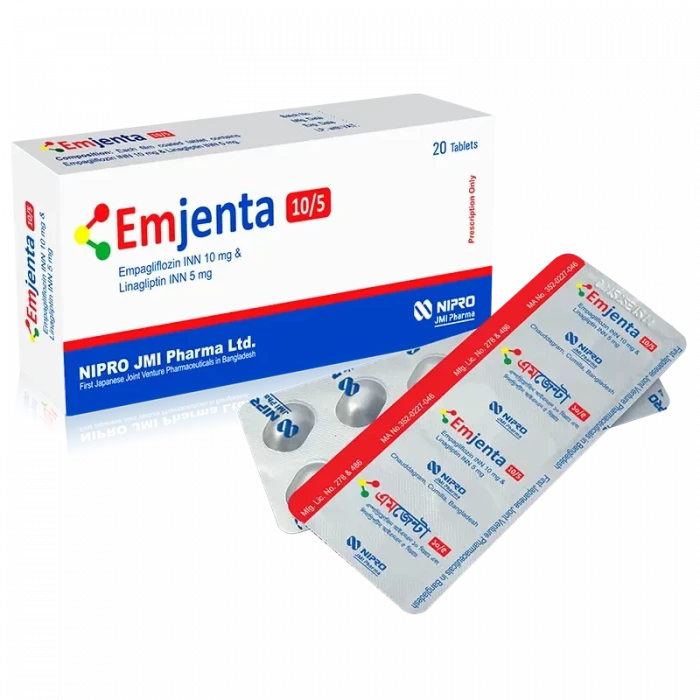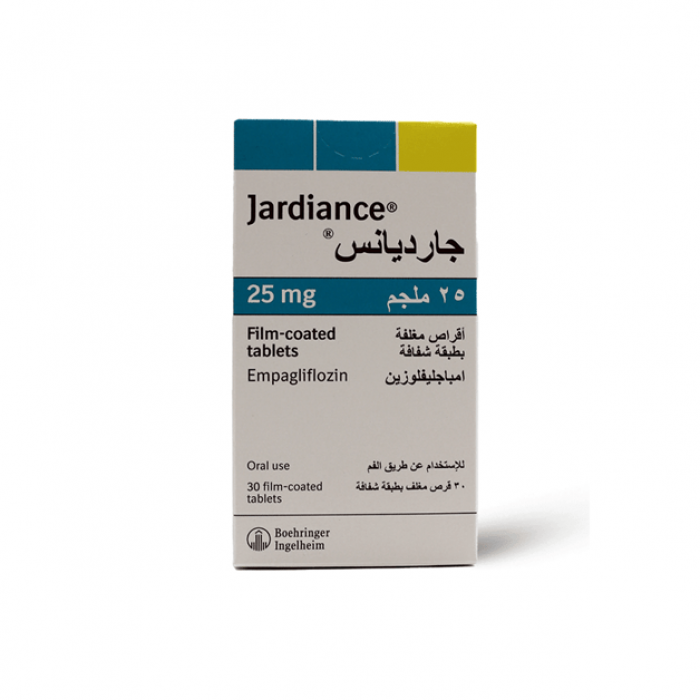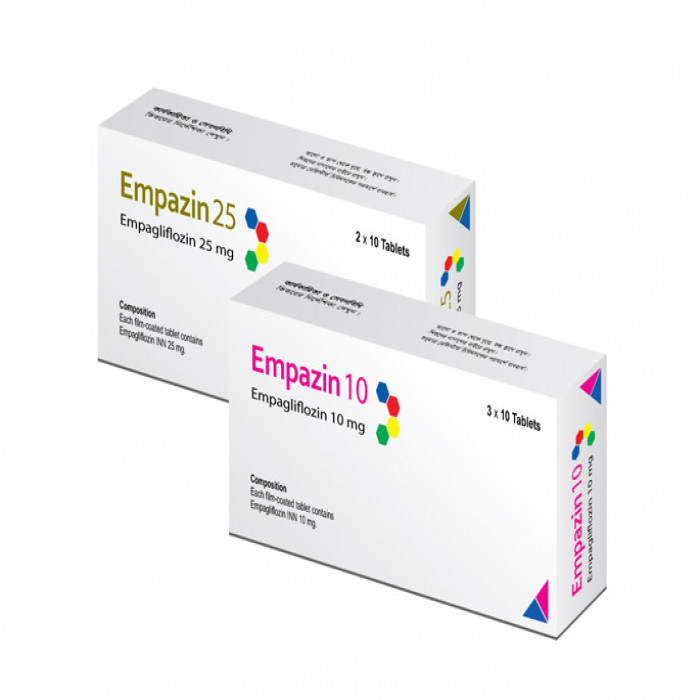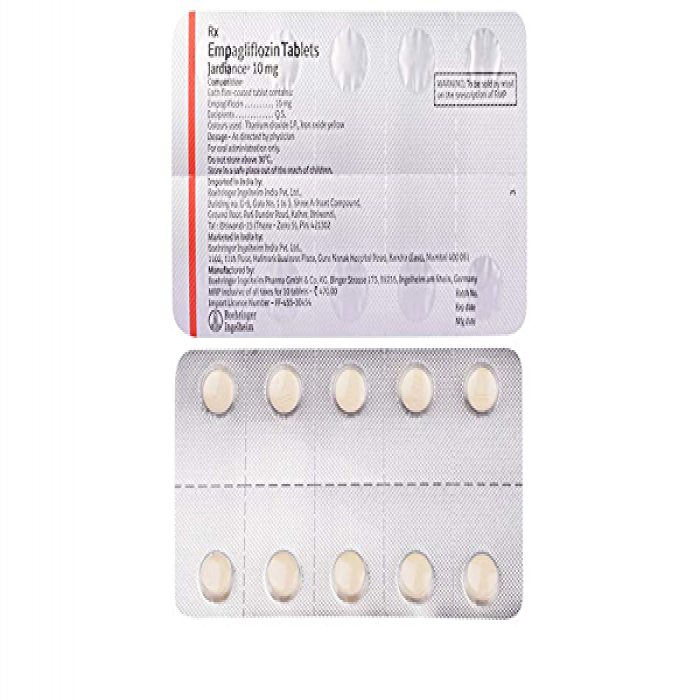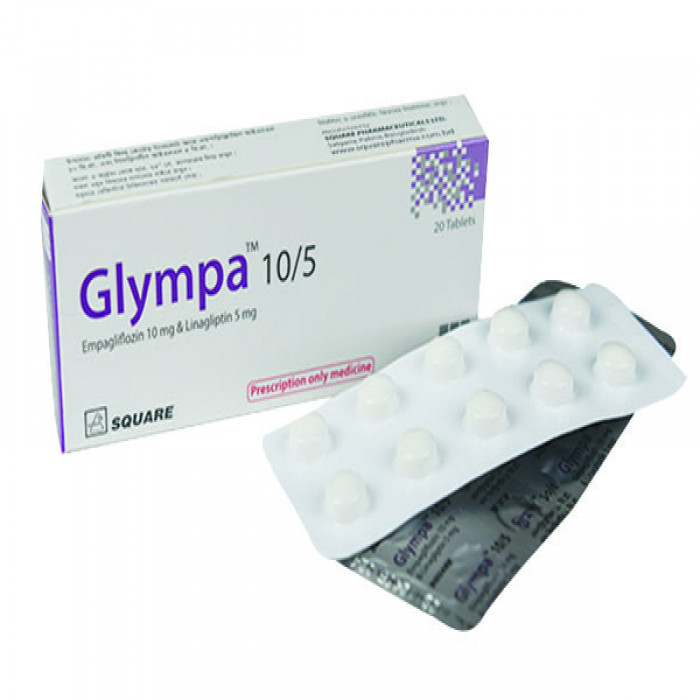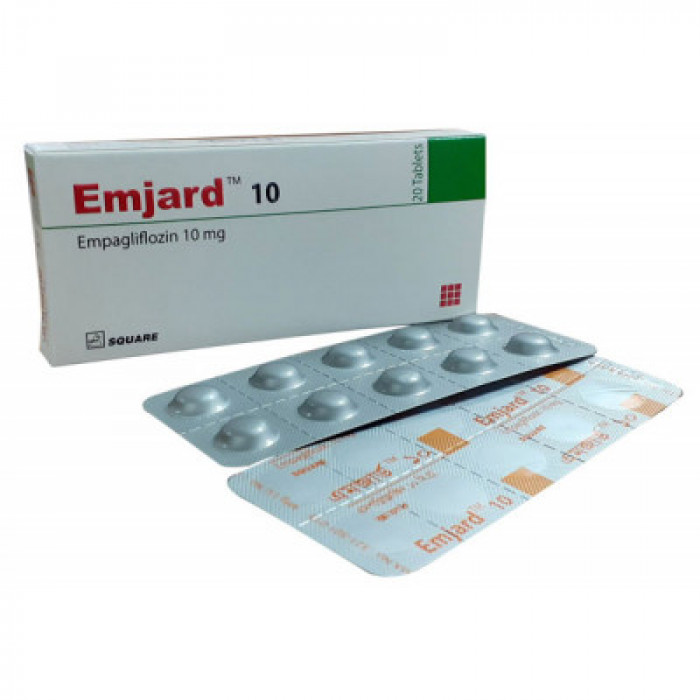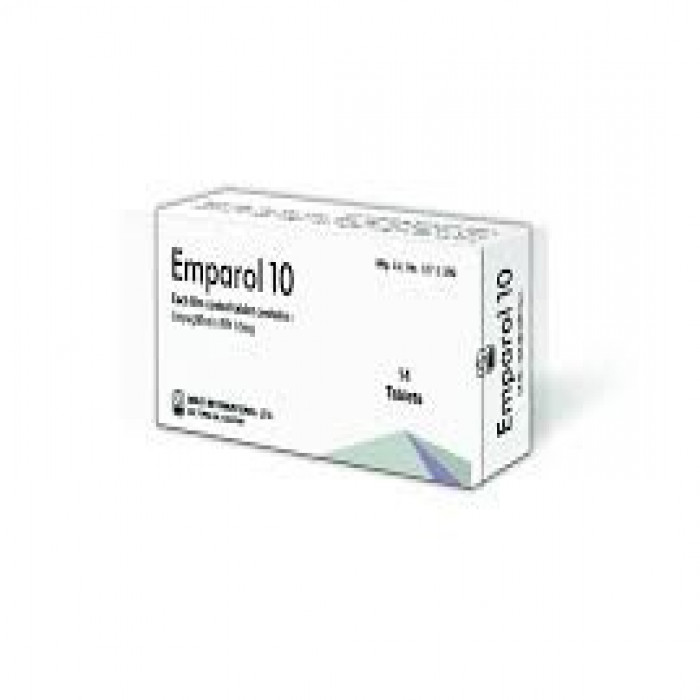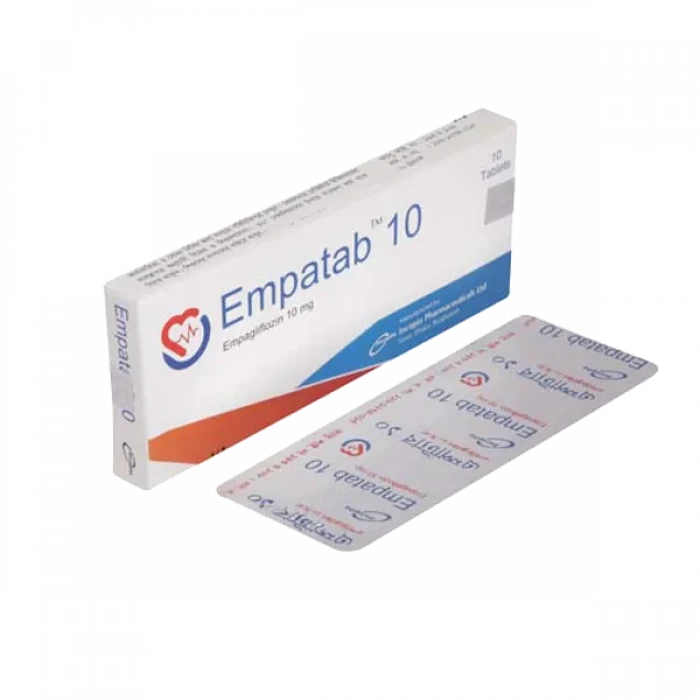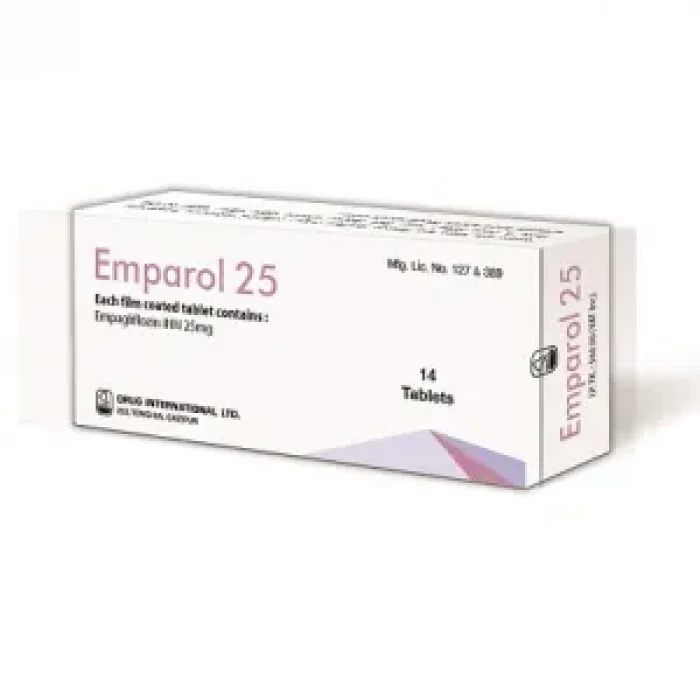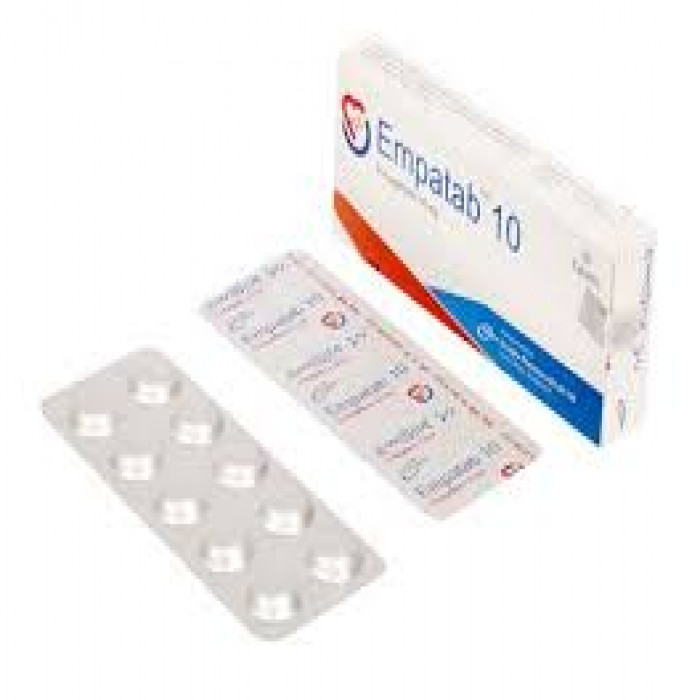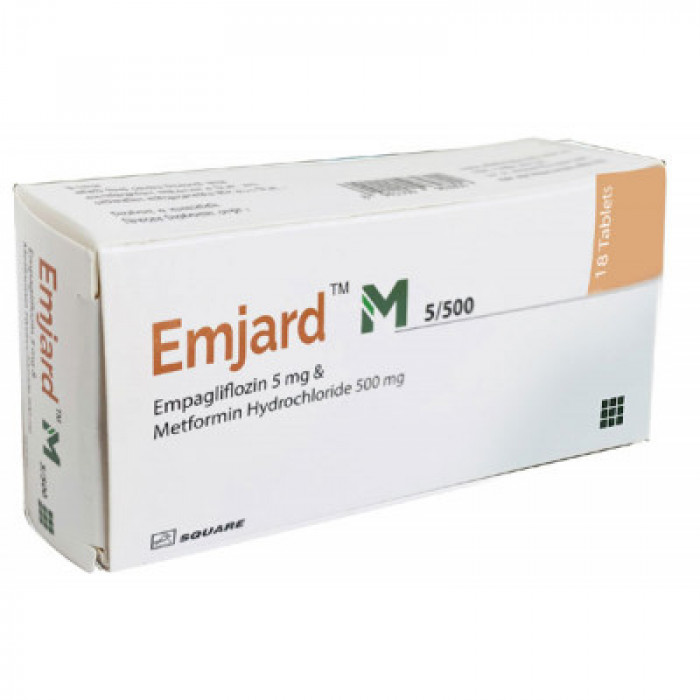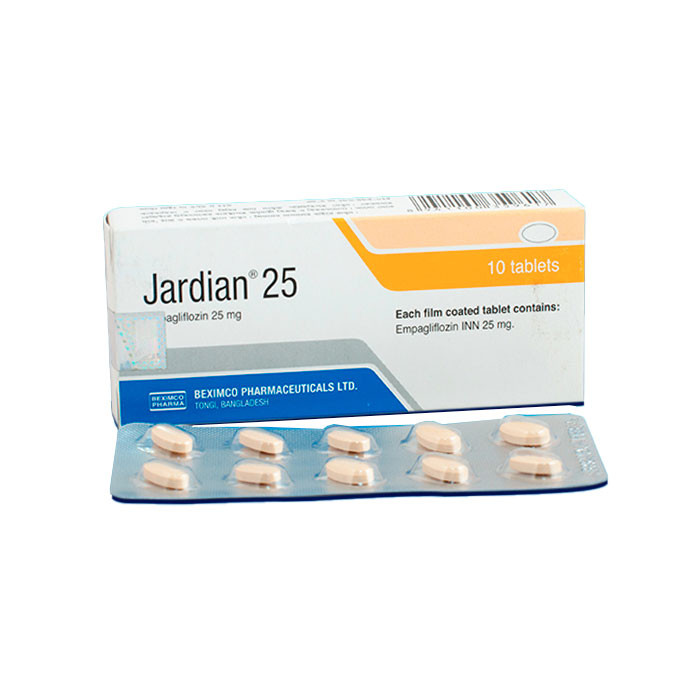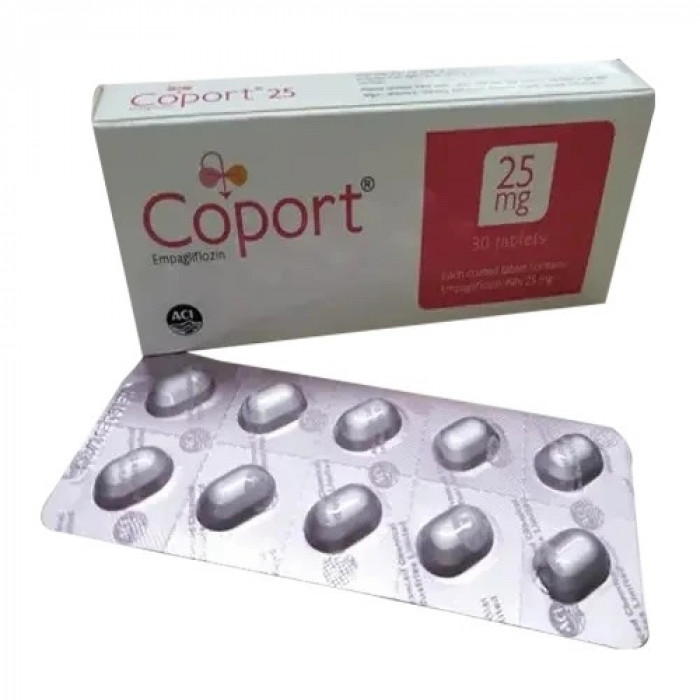
✔ 100% Authentic Product
👁️ Currently Viewing 2440
Coport Tablet adjunct to diet and exercise to improve glycemic control in adults with type 2 diabetes mellitus. And reduce the risk of cardiovascular death in adult patients with type 2 diabetes mellitus and established cardiovascular disease.
Discount
Price: ৳ 428
MRP:
৳
450
5%
Off

100% Genuine Products, Guaranteed

Safe & Secure Payments, Always

Fast, Secure & Efficient Delivery

Proper Packaging
 Cash on Delivery - All over Bangladesh
Cash on Delivery - All over Bangladesh Regular Delivery - 12-24 Hours, Dhaka City* Charge Tk.39-59
Regular Delivery - 12-24 Hours, Dhaka City* Charge Tk.39-59 Regular Delivery - 24-48 Hours, Other Cities* Charge Tk.99-110
Regular Delivery - 24-48 Hours, Other Cities* Charge Tk.99-110
🌙 রমযান অফার 🌙
 ফ্রি ডেলিভারিঃ - ৭৯৯ টাকা+ অর্ডারে, ঢাকা
শহরে
ফ্রি ডেলিভারিঃ - ৭৯৯ টাকা+ অর্ডারে, ঢাকা
শহরে ফ্রি ডেলিভারিঃ - ২৭৯৯ টাকা+ অর্ডারে, ঢাকার
বাহিরে
ফ্রি ডেলিভারিঃ - ২৭৯৯ টাকা+ অর্ডারে, ঢাকার
বাহিরে
📲 মোবাইল অ্যাপ অর্ডারে সাশ্রয় বেশী
-
Google Play Store থেকে ডাউনলোড
-
Apple Store থেকে ডাউনলোড
100% Genuine Products, Guaranteed
Safe & Secure Payments, Always
Fast, Secure & Efficient Delivery
Proper Packaging
 Cash on Delivery - All over Bangladesh
Cash on Delivery - All over Bangladesh Regular Delivery - 12-24 Hours, Dhaka City* Charge Tk.39-59
Regular Delivery - 12-24 Hours, Dhaka City* Charge Tk.39-59 Regular Delivery - 24-48 Hours, Other Cities* Charge Tk.99-110
Regular Delivery - 24-48 Hours, Other Cities* Charge Tk.99-110 ফ্রি ডেলিভারিঃ - ৭৯৯ টাকা+ অর্ডারে, ঢাকা
শহরে
ফ্রি ডেলিভারিঃ - ৭৯৯ টাকা+ অর্ডারে, ঢাকা
শহরে ফ্রি ডেলিভারিঃ - ২৭৯৯ টাকা+ অর্ডারে, ঢাকার
বাহিরে
ফ্রি ডেলিভারিঃ - ২৭৯৯ টাকা+ অর্ডারে, ঢাকার
বাহিরে- Google Play Store থেকে ডাউনলোড
- Apple Store থেকে ডাউনলোড
🌙 রমযান অফার 🌙
📲 মোবাইল অ্যাপ অর্ডারে সাশ্রয় বেশী
✅ Description:
- As an adjunct to diet and exercise to improve glycemic control in adults with type 2 diabetes mellitus.
- To reduce the risk of cardiovascular death in adult patients with type 2 diabetes mellitus and established cardiovascular disease.
Pharmacology
Empagliflozin is a sodium glucose co-transporter-2 (SGLT-2) inhibitor. SGLT2 co-transporters are responsible for reabsorption of glucose from the glomerular filtrate in the kidney. The glucuretic effect resulting from SGLT2 inhibition reduces renal absorption and lowers the renal threshold for glucose, resulting in increased glucose excretion. Additionally, it contributes to reduced hyperglycaemia, assists weight loss, and reduces blood pressure.
Dosage & Administration
The recommended dose of Empagliflozin is 10 mg once daily, taken in the morning, with or without food. In patients tolerating Empagliflozin, the dose may be increased to 25 mg once daily. In patients with volume depletion, correcting this condition prior to initiation of Empagliflozin is recommended.
Interaction
Diuretics: Co-administration of Coport with diuretics resulted in increased urine volume.
Insulin or Insulin Secretagogues: Co-administration of Coport with insulin or insulin secretagogues increases the risk for hypoglycemia.
Positive Urine Glucose Test: Monitoring glycemic control with urine glucose tests is not recommended in patients taking SGLT2 inhibitors as SGLT2 inhibitors increase urinary glucose excretion and will lead to positive urine glucose tests. Use alternative methods to monitor glycemic control.
Interference with 1,5-anhydroglucitol (1,5-AG) Assay: Monitoring glycemic control with 1,5-AG assay is not recommended as measurements of 1,5-AG are unreliable in assessing glycemic control in patients taking SGLT2 inhibitors. Use alternative methods to monitor glycemic control.
Contraindications
Empagliflozin is contraindicated in patients with history of serious hypersensitivity reaction to Empagliflozin or any of its ingredients, severe renal impairment, end-stage renal disease, or dialysis.
Side Effects
The most common adverse reactions associated with Coport are urinary tract infections and female genital mycotic infections. Others common side effects includes dehydration, hypotension, weakness, dizziness and increased thirstiness.
Pregnancy & Lactation
There are no adequate and well-controlled studies of Empagliflozin in pregnant women. Empagliflozin should be used during pregnancy only if the potential benefit justifies the potential risk to the fetus. It is not known if Empagliflozin is excreted in human milk. It is not recommended when breastfeeding.
Precautions & Warnings
Assessment of renal function is recommended prior to initiation of Coport and periodically thereafter. Coport should not initiated in patients with an eGFR less than 45 ml/min/1.73 m2. No dose adjustment is needed in patients with an eGFR greater than or equal to 45 ml/min/1.73 m2.
Overdose Effects
In the event of an overdose with Coport the usual supportive measures (e.g., remove unabsorbed material from the gastrointestinal tract, perform clinical monitoring, and institute supportive treatment) should be employed. Removal of Coport by hemodialysis has not been studied.
Therapeutic Class
Sodium-glucose Cotransporter-2 (SGLT2) Inhibitors
Storage Conditions
Keep in a cool & dry place (below 30° C), protected from light & moisture. Keep out of the reach of children.
⚠️Disclaimer:
At ePharma, we’re committed to providing accurate and accessible health information. However, all content is intended for informational purposes only and should not replace medical advice from a qualified physician. Please consult your healthcare provider for personalized guidance. We aim to support, not substitute, the doctor-patient relationship.




